“To make a good pure juice, there is no secret: everything is in the choice of the fruit, so I taste all of our raw materials to be sure to have the best!”
Yvann – purchasing manager and greedy above all
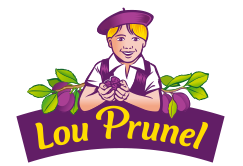
The prune industry has experienced ups and downs over the years, with significant price variations but Vitamont has been a reliable choice.
Vitamont
Hello Laurence Boquet,
For more than 20 years, you have been working with Vitamont and delivering our famous prunes from Agen to them to produce their 100% prune juices. Tell us about the beginning.
Laurence Boquet
It all started in 1955, when my father planted ½ ha of prunes in conventional plum trees. Step by step, the farm grew gradually.
In 1969, with the arrival of this new mode of production, my father swithced his plum trees to Organic Agriculture. At the time, he produced prunes from Agen, which he sold to company committees, in health food stores, and at organic fairs.
In 1996, during the overproduction crisis, we needeed to find other ways to sell the stocks of the year. My parents met Alain Brugalières, Vitamont’s CEO, during a meeting of the organic union. He offered them to buy their overproduction to launch prune Juice from Lot-et-Garonne. This is how a strong bond was forged between these two companies 100% organic. Naturally, we became an official supplier of prunes from Agen for Vitamont juices.
Vitamont always supported Lou Prunel, it is a true partnership, it respects their commitments and agrees to pay the fair price.
Vitamont
And you, how did you get into this business?
Laurence Boquet
After my studies and a short professional experience in Paris, I went back to the roots in 1998 where I helped my mother managing the company. In 2002, she retired and sold her shares, I remained an employee and a partner of the company.
Vitamont
How do you cultivate your plum trees?
Laurence Boquet
As you know, in the organic agriculture we work with nature and not against it.
First, we turn the earth regularly on 1 meter around the trees. In central aisles, grass is left to better maintain the soil and to drive with tractors by minimizing ruts. We sow beautiful white flowers « fababeans ». These flowers attracts ladybugs that will feed on the harmful aphids. We also sow some forage plants to improve soil structure, promote the abundance of microorganisms and drain the soil.
At the end of the season, everything is grinded and left in place to produce nitrogen and enrich soil naturally.
We can also count on pollinating bees that will fertilize flowers.
In prevention, clay is used as a protective barrier. It will repel pests such as codling moth (a worm that grows inside the fruit). It is also effective in reducing diseases.
Contrary to the conventional, here we act before problems happen.
Vitamont
What’s the next step?
Laurence Boquet
We plan to be labelled FAIR FOR LIFE, as Vitamont is already. So we can offer organic and fair prunes. And that’s a lot!
Vitamont
Why do you deliver your prunes to Vitamont?
Laurence Boquet
It does make sense!
Our histories are so close, everything cames naturally: we are organic since 1969, we are located at 17km, we have the same vision of organic– nothing is lost, everything is transformed – and we grew together, so it bonds!
For example, did you know that organic prune waste that is not used to prepare the juice, such as the stone and part of the pulp, is offered by Vitamont to farmers? The cores are used as fuel, while the pulp helps feed organic cows.
Here is a beautiful virtuous loop!
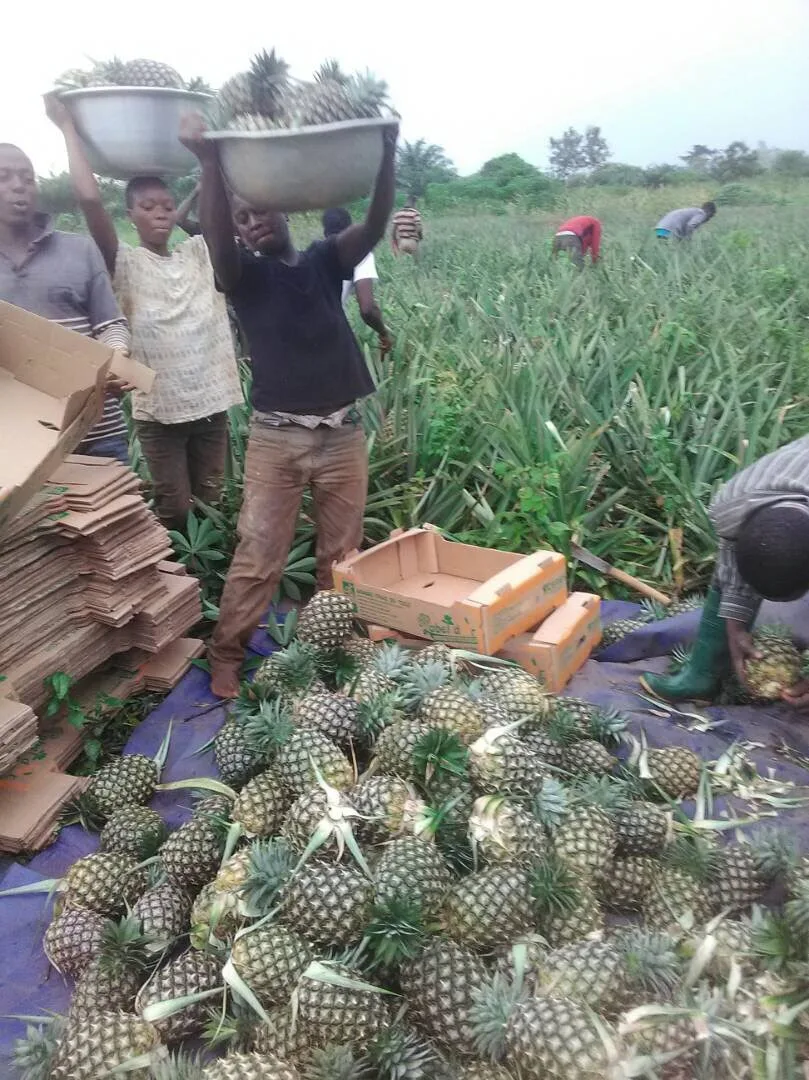
Vitamont likes meaningful partnerships. By choosing to work with the pineapple supply chain in Togo, and by establishing a Fair For Life certification, Vitamont is actively involved in the life of more than 400 small pineapple productors.
Vitamont
Hello Mr Cassin, you are in charge of the pineapple supply chain, tell us about your beginning.
Jean Paul Cassin
Initially, there is the Label d’Or company which produces and exports fresh organic pineapple for more than 10 years. In 2017, a new project is launched with the settlement of a pineapple processing factory, financed by the Morenga Partnership solidarity fund and that is the birth of a new entity: Jus Délice.
On-site, there is a team of 10 perfectly trained people managing all the pineapple supply chain: from cultivation to expedition.
Vitamont
How to grow and harvest pineapple?
Jean Paul Cassin
Pineapple is grown all year round, there is no season to plant and its life cycle is of 18 months.
We plant suckers of 50 cm height. There are between 40 000 and 50 000 feet/ha, or a production of 40 tons per ha.
Pineapples do not need any irrigation. We work with more than 400 farmers on very small fields – over 0.3 ha. They manually work the soil with the spade and the weeder and weed 3 to 4 times during the life cycle of the pineapple.
Togo has an ideal climate for pineapple that prevents many diseases and parasites on plantations, so there is no need to treat.
When the pineapples are ripe, the quality department takes a sample, validates the ripeness, taste quality, acidity and brix (sugar content) before giving a favourable opinion for harvesting or waiting for better ripeness.
After the harvest, in order to regenerate, the fields are left fallow or used for other complementary crops such as legumes, peanuts, alfalfa or soybeans.
On site, the company installed a composting plant that uses co-products by drying the leaves of the pineapple in the sun to transform them into compost that will be used as fertilizer at the feet of the plants.
Vitamont
How did you meet Vitamont?
Jean Paul Cassin
It’s a reference company and the one with the widest choice of juices!
It is a beautiful collaboration that we are starting.
First of all, Vitamont offered us the opportunity to develop our sales of organic pineapples, but above all we decided to set up a Fair For Life certification together. This certification has many advantages for us. It leads to a contract:
- Over several years: which give us readability.
- On the formation of a fair price that remunerates farmers appropriately
- On a volume which allows to organize the production
This type of contract also makes it possible to pay an additional 10% of the price directly to the producer, which will contribute to finance collective actions.
It is a real committed, organic and fair action, that really helps local farmers and we are proud to participate.
Vitamont
What are your plans to help the farmers?
Jean Paul Cassin
We’ve already put water in the village this year, and we’re thinking about building a school and bringing in electricity.
These are still great projects to support…
Also, in the Vitamont pineapple juice of Togo, there is a bit of all that!
Find the pineapple juice of Togo here.
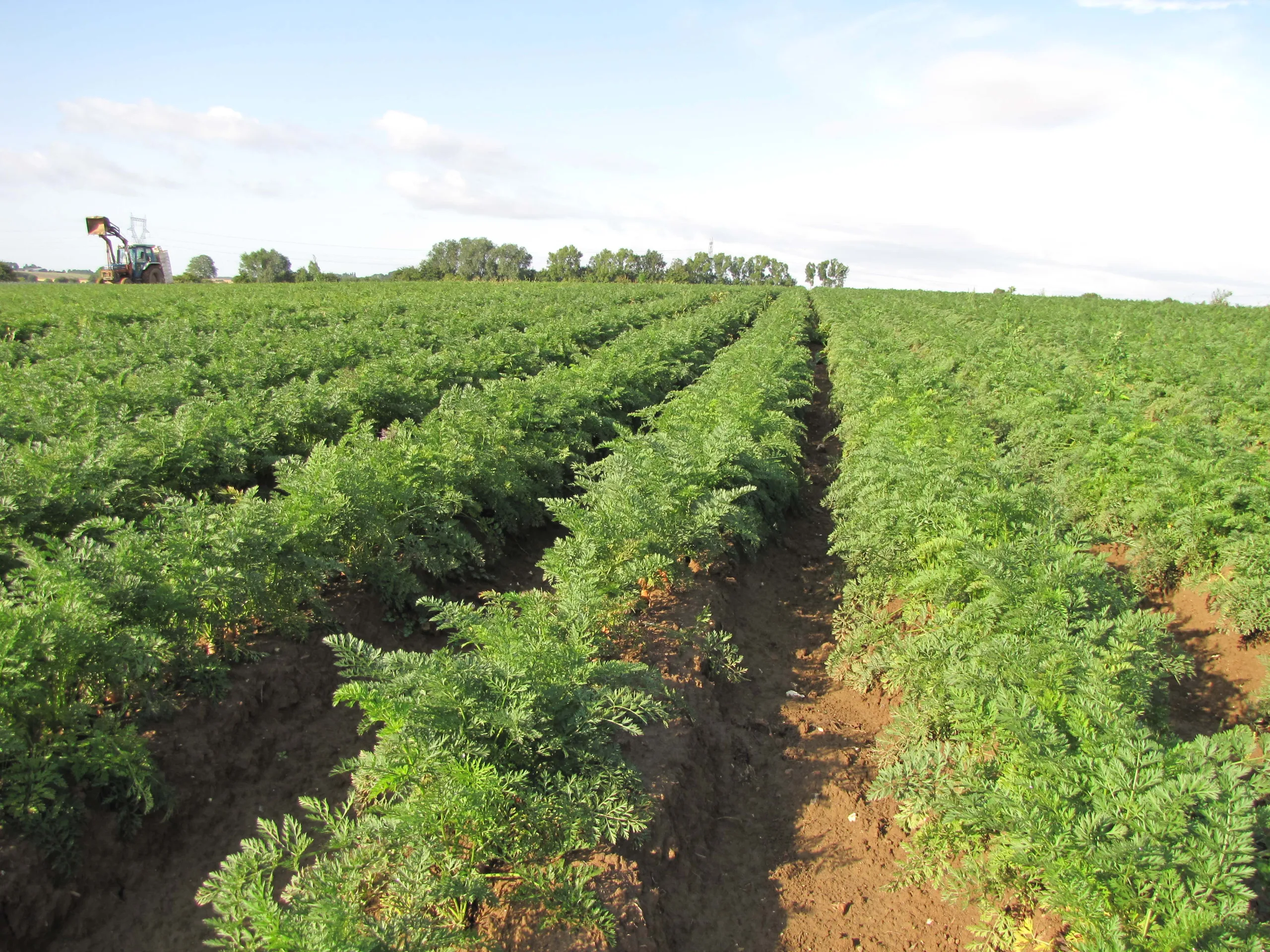
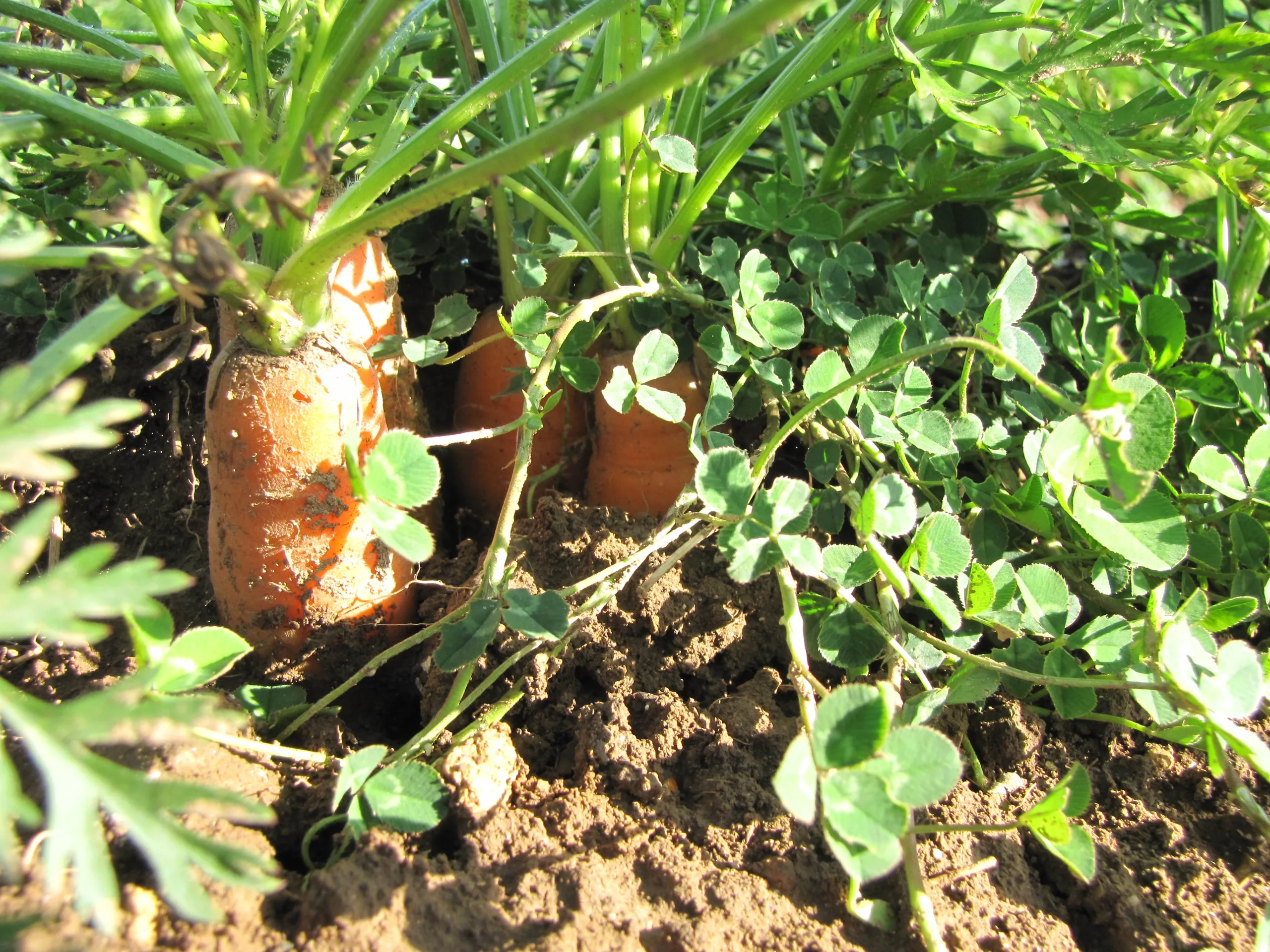
Vitamont
Hello Mr Letard, you are agronomist and productor of carrots,
And Hello Mr Carle, you are operator in organic vegetables.
Tell us more about your company?
Guillaume Letard
We are a family company located in Feuchy, Normandy. We have 2 100% organic sites that employ nearly 60 persons. We are the contact between organic farmers of carrots, turnips, onions, cabbages and potatoes of our territory and the market. They deliver their production to us and we take it upon ourselves to market them after checking quality, size, weight … We have a storage platform, a washing and packaging line.
To date, we have managed to federate more than 50 organic partner farmers in our region.
Vitamont
How is it going in the fields?
Julien Carle
We sow from april to june and harvest from mid-september to early december. After that it is no longer possible, because we are in an area where the land is greasy and it is more difficult to go into the fields.
Since we are organic, we only do mechanical weeding.
1 month before sowing, the soil is prepared with mounds, weeds are grown and cut mechanically, then the seeds of organic carrots are sown.
In general, we don’t need to treat because there are few predators or fungi that attack carrots. However, if necessary we can spray essential oils to protect carrots against a white fungus: powdery mildew.
In organic agriculture, everything is important, even on harvest day! We always prefer to do it on a cold and wet day because carrots last longer.
They are pulled through the tops, and you avoid touching the carrot itself. We leave the earth around before putting them in pallox.
They are washed, sorted and calibrated just before the departure of the order to keep all their freshness.
Vitamont
And what about our partnership?
Guillaume Letard
We have been working together since 2018. We solicited you. We were in the right place in the right time. I remember that you particularly appreciated the quality of our carrots, the rigor of our quality process but also our role and our commitments to the agricultural world..
After a year discovering each other, all the points were there for us to work together and set up a 3 years contract, it is for us a very good solution: It gives us security on the volume, it is a good outlet for our sorting differences (co-product) and the fixed price is valid for 3 years. We can also propose on our side this type of contract to our farmers. And they don’t complain!
Vitamont
Tell us more about your CSR policy.
Guillaume Letard
We support local organic agriculture, working with more than 50 farmers. It’s important for us to employ local workforce, even our transporters are small local companies.
We also have a policy on waste reduction and co-products valorisation. For example, to offer organic farmers the vegetables that have been decommissioned to feed their organic livestock.
We also have a closed-circuit wash house that allows water to be reused. We use the principle of settling
In order to reduce the arduousness of manual weeding, we have set up extented weeding trays.
Finally, every week, we offer the food bank 2 pallets of fresh vegetables.
Vitamont
Do you have any projects?
Guillaume Letard
Yes of course, we are thinking about a methanisation project, but it is too early to say more…
Find Mr Carle’s carrots in the Vitamont carrots of Normandy juice here.
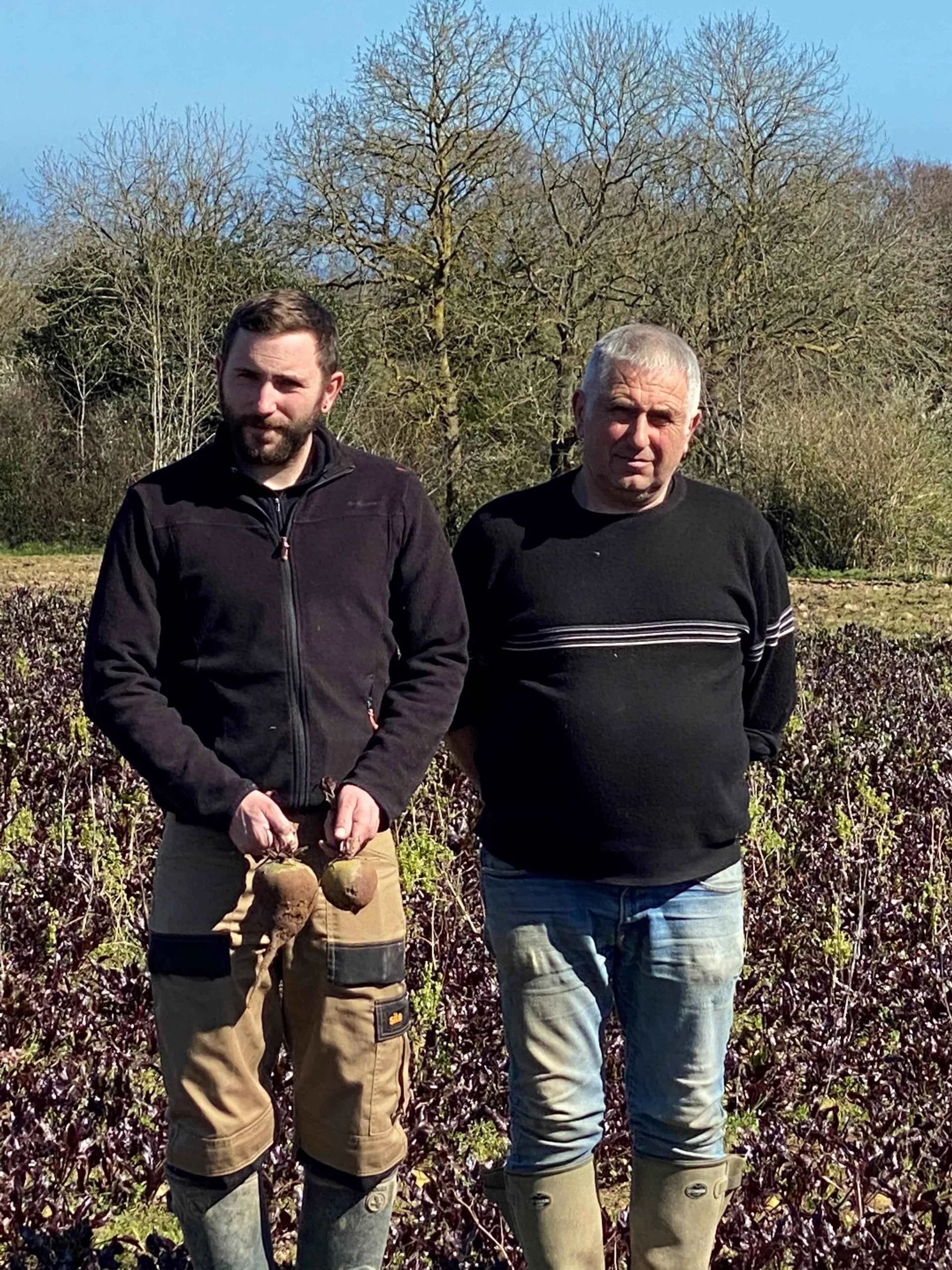
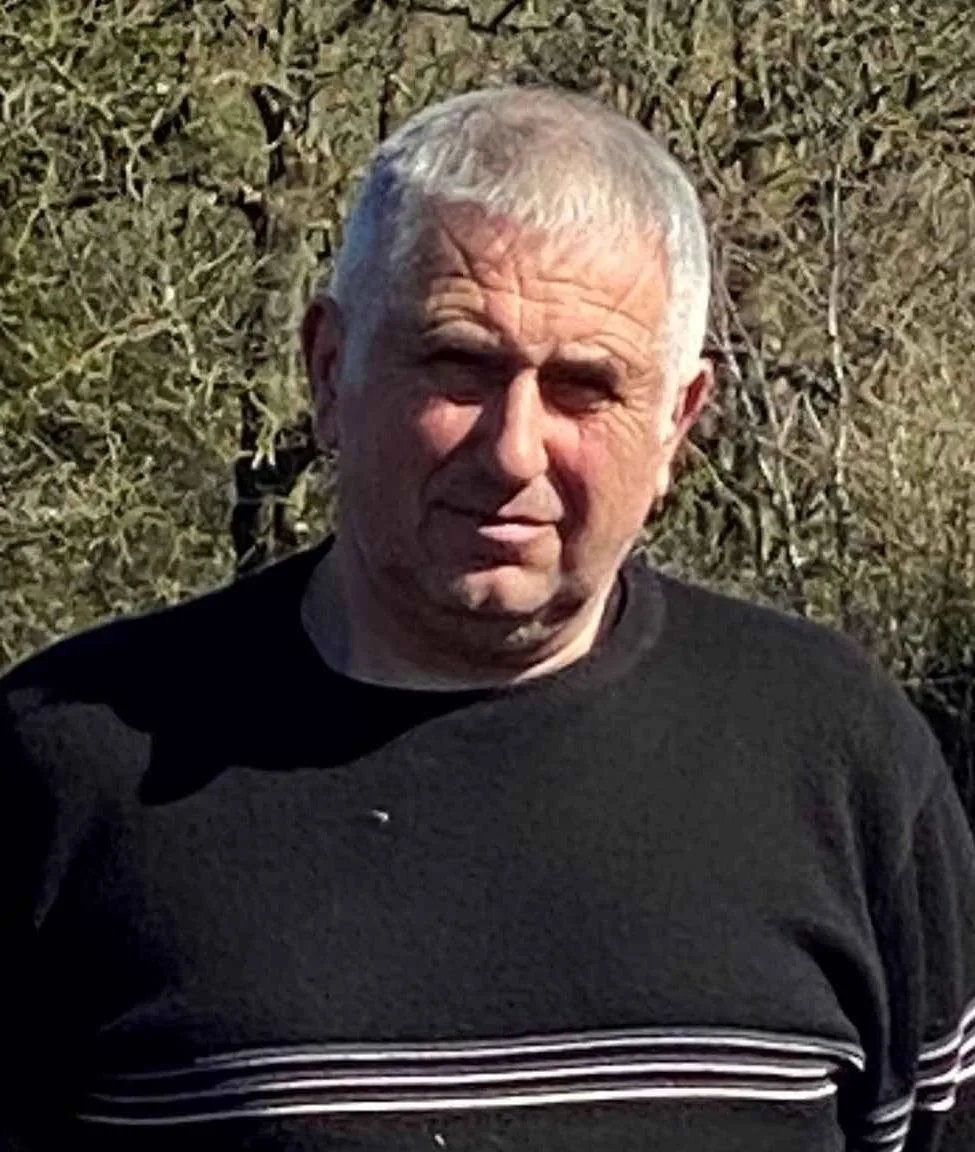
Vitamont
Hello Mr Feron, here we are in the heart of Normandy, on your fields near Cherbourg.
Could you tell us your beginning in organic agriculture?
Jacques Feron
I had always worked in conventional agriculture, but in 2009, 3 elements pushed me to reconsider the situation.
- An organic farmer I knew was retiring and offered me to take over his clients and his land.
- My son agreed to work on the farm but only if we would make organic.
- Finally, I had health concerns from using pesticides.
All the elements were brought together to make the switch to organic.
Today, with my son and my wife, we work on 75 ha where we grow 25 kinds of vegetables 100% organic and there is only organic on my plots and it is rather intended for the food market: wheat, barley, leeks, potatoes, lettuce, celery root, red cabbage, white cabbage, curly, broccoli, romanesco …
Vitamont
Tell us about the crops you do for Vitamont?
Jacques Feron
For you, I keep 3 ha of beetroot and 5 ha of black radish, field-grown of course!
Whether it is for black radish or beetroot, it is the same way: from organic seeds, I prepare with my son my seedlings from late May to mid-July. So I can spread out my harvest period that starts around August 20th and ends in February.
We do not use any treatment, not even «organic», we only carry out mechanical actions by passing the caliper harrow to break the germs of the avantives and to protect the crops from parasites like the fly of the black radish; then, we hoe and we weep with the hand our 8 ha.
Vitamont
Why do you work with Vitamont?
Jacques Feron
We’ve been working together for nine years, and it creates relationships. And then we set up a crop contract. This contract is rather reassuring for me because it specifies the tonnage on which you agree on the year and sets the price. At the signing in May, I can start my seedlings and plan the quantity to be picked up to cover your needs. This allows me to plant the right quantity (excluding climatic hazards). In addition for me, it is one more outlet with a recurring income.
Find the juice of Mr Feron‘s beetroot from Normandy here and the black radish in the « Liver Comfort » drink here.
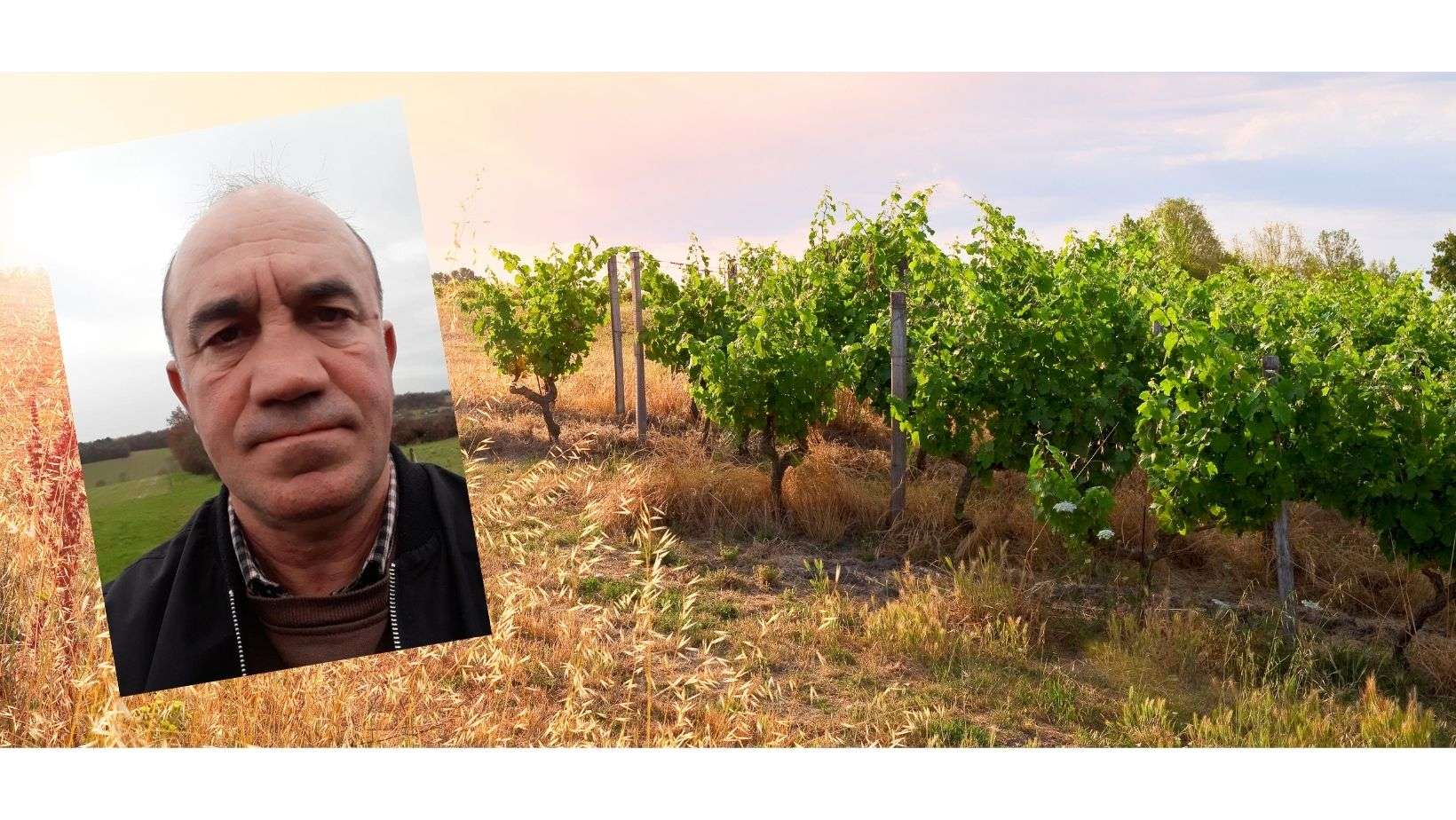
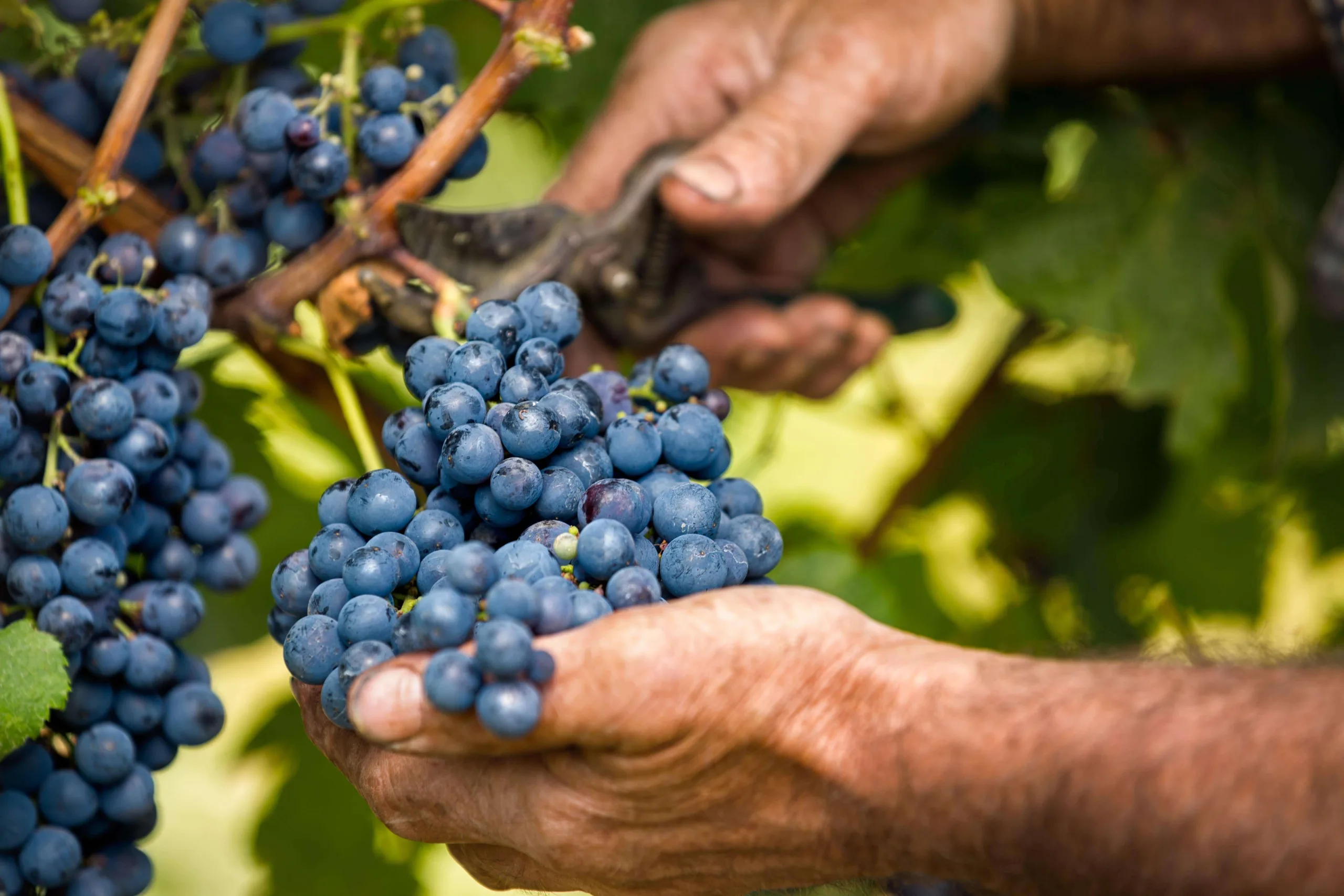
Vitamont
Hello Mr Biche, you are a winegrower in the town of ST Maurice de Lestapel near Cancon (north of the Lot et Garonne department in France). And you produce ORGANIC grapes. How did you get started on this adventure?
Francis Biche
In 2011 with 9 other farmers, we wanted to diversify our production and the geographical proximity of Vitamont (only a few km from our vines) inspired us!
With the help of the Terres du Sud technician, we developed the establishment of a vineyard dedicated to the production of organic grape juice.We therefore launched our first plantations in 2011 by selecting very specific grape varieties, because we do not does not make grape juice with the grapes used for the wine and in addition by going organic, we had to find disease tolerant grape varieties.
Vitamont
Which varieties did you choose and why?
Francis Biche
We therefore planted old varieties, Chambourcin and Vilalard noir. These 2 grape varieties have been neglected by wine producers because they are not sweet enough to produce alcohol, but perfect for making a juice with intense color and a good acidity / sugar balance.
In 2014, our vines offered us our first harvest of organic grapes.
But producing organic inevitably costs more, so you had to find some common sense tips to save a little. For example, a thread has been stretched between the feet in order to surround the vine cord above and thus allow the mechanization of pruning.
Vitamont
Tell us about the care you provide to your vineyard?
Francis Biche
In organic, we protect the vines with natural solutions. Our grape varieties are tolerant to the main diseases which makes it possible to limit the use of these solutions by a natural resistance of the vines to pathogenic fungi.
To feed it, we only use organic fertilizers or composts without resorting to mineral fertilization. We are also increasingly using green manures which enrich the soil when the plants decompose.
We also favor drip irrigation, which is more economical and more efficient. We control the irrigation with probes which indicate the humidity of the soil.
Over time on these lands free from pesticides, biodiversity reappears and the vines become more resistant because they have learned to defend themselves naturally. It is really essential to respect this balance and to protect your insect-auxiliaries.
Vitamont
What are your relations with the Sud Légumes/Terres du Sud producers organization?
FraNcis Biche
Each week a technician checks the plots, gives his assessment and gives advice on grassing, plant development, the need to treat or not, setting up a trap against predators as for the fly that perforates grains …
With the cooperative, we also have the opportunity to taste our juices in order to improve them through cultivation.
Vitamont
Once the grape is ripe, what happens?
Francis Biche
It is harvested in September rather at night or in the very early morning in order to avoid fermentation due to the heat, then it is delivered to juice at the pressing workshop in Marmande. The grapes are then inspected, the sugar and acidity levels are checked. Then, it is macerated to extract the color then pressed within 12 hours, filtered and flash pasteurized.
Vitamont
What is your vision for the agriculture of tomorrow?
Francis Biche
We must not wait for tomorrow, but react today! and organic farming is the opportunity to do so! Here, we continue to develop small areas.
Landscape integrations must be made in the middle of the plots in order to strengthen biodiversity.
We come back to logic, by working with the seasons, the weather and the insects and time has allowed us to learn from nature to work with it and not against it. And as long as we have customers who are convinced by our approach, we will go in the right direction …
Thank you Mr Biche for sharing your passion with us
Find the Lot et Garonne grape juice from Mr Biche on our site

